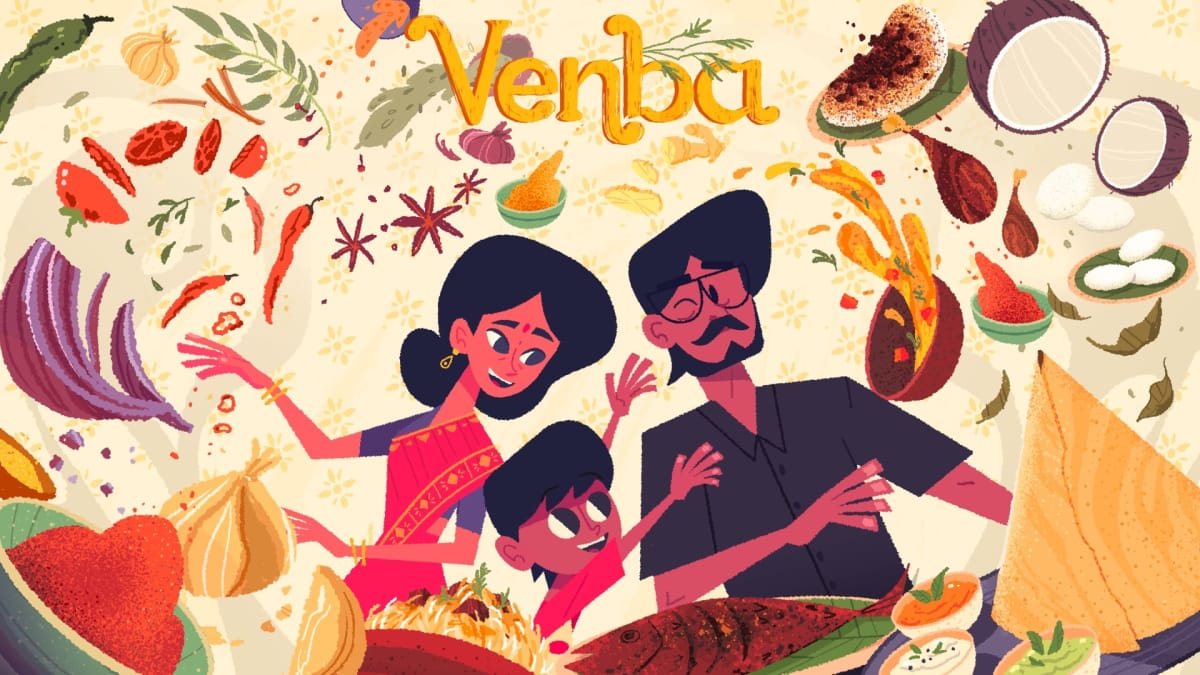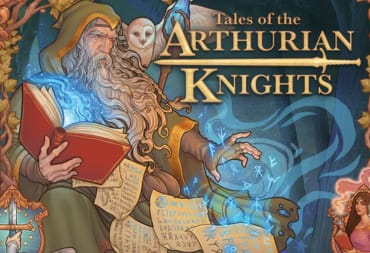There’s one thing for certain that I can say after playing Venba, and it’s that there isn’t a game out there quite like it. Venba is a narrative cooking game that follows the titular character, Venba, and her family as they go through the ups and downs of being Indian immigrants in Canada. As someone who’s grown up abroad and then moved back to India later in life, I was invested as soon as I heard the game’s premise. I ended up playing Venba on a cold, rainy afternoon, and over the course of the game, I cried several times. At the end of it, a part of me felt healed and also very hungry.
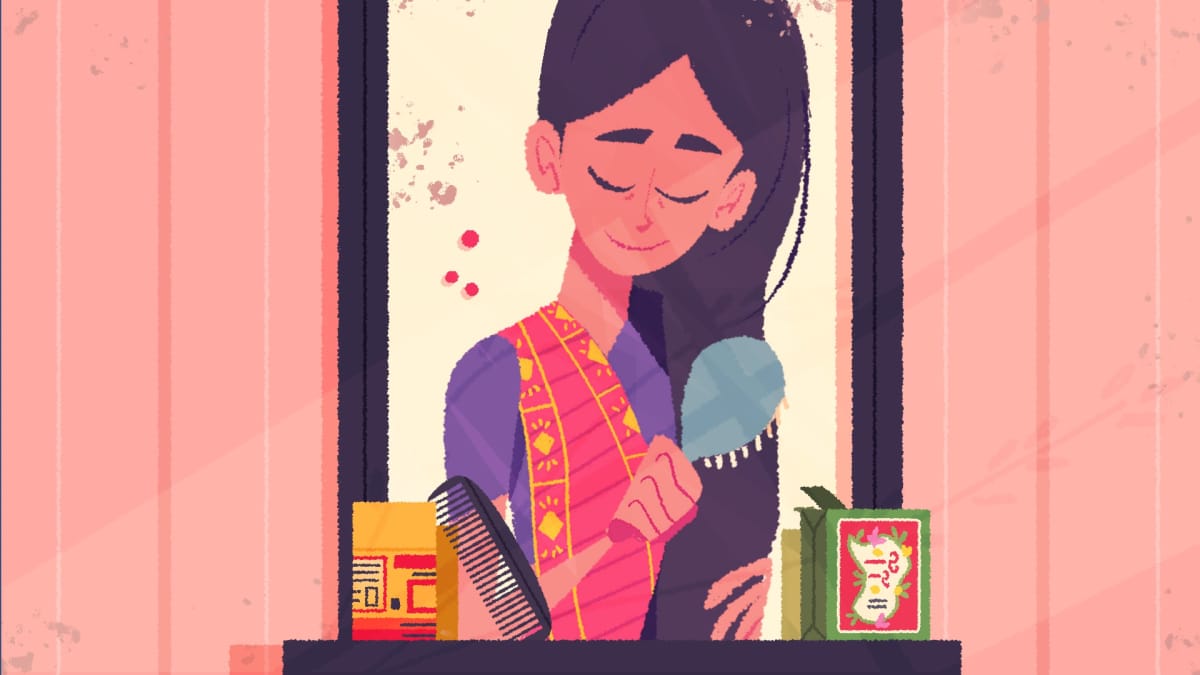
When you boot up Venba, you’re greeted with an eye-catching menu made up of a tray of spice jars. Every selection option has a satisfying pop, shake, or clatter, but more about the game’s satisfying sound design later. Sporting a soft, 2D oil pastel art style, the game starts in the late ‘80s and takes you through the years, each chapter opening up with a nice little proverb. The first chapter opens up with Venba’s husband, Paavalan getting ready to leave for work.
After Paavalan expresses that it’s too much effort to steam some idlis (a type of steamed savory rice cake) for lunch, a tired and unwell Venba wakes up and decides to make them herself. Only this time, she wants to follow her mother’s recipe. And so, we’re tasked with making our first dish in the game. The recipe book is worn out, so it’s up to us to figure out the missing bits of the recipe and piece it together. In this case, we need to learn the trick to making perfectly fluffy idlis.
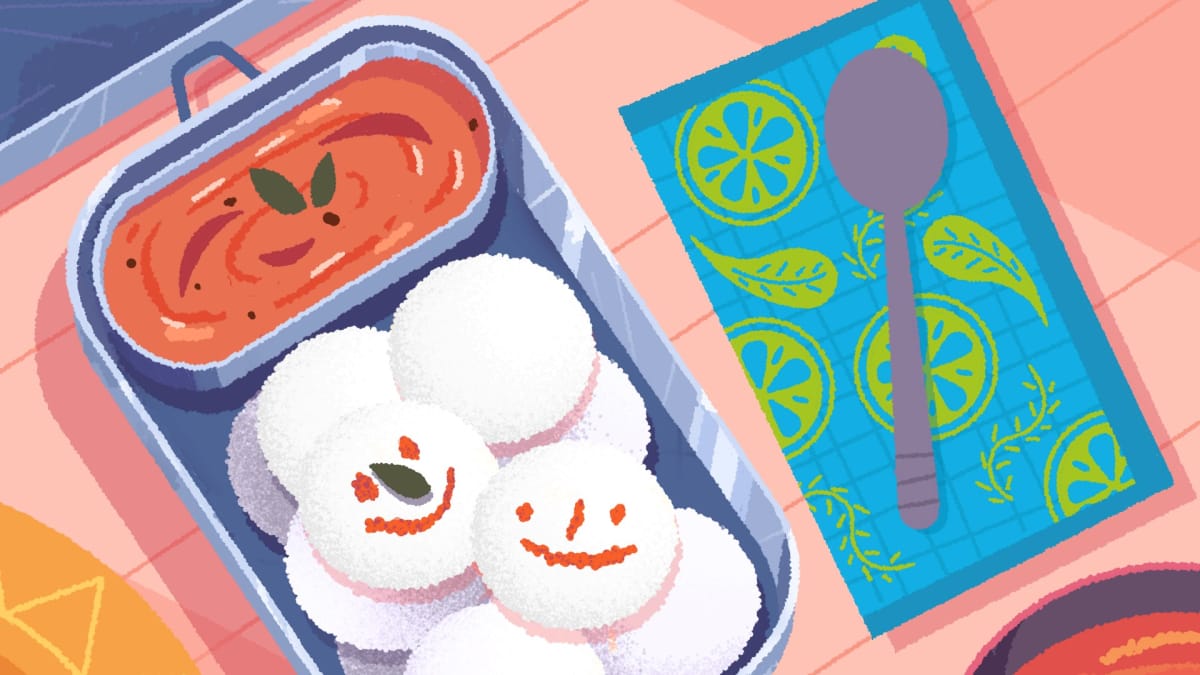
I’m somewhat of a home cook myself since I make food for myself every day, so I figured out a few of the puzzles pretty easily, but some of them are a bit tricky. There’s a layered biriyani that you make later on in the game which took some trial and error, as it was definitely a lot more fancy than your average biriyani. However, Venba is pretty lenient when it comes to the cooking gameplay, so even if you end up messing up, there’s a redo button to start all over again. There aren’t any timers so you can take your time and think about the next step. You can even ask for a hint in case you’re not too well-versed in South Indian cuisine.
Venba usually puts some Tamil music on the radio whenever she’s cooking, and the tunes are just so good. Venba’s soundtrack pays homage to various music directors from Tamil cinema, and depending on the year the chapter takes place, the music changes. A lot of care has been put into the cooking sounds as well. When all the ingredients are plopped onto the counter, they all make a different noise. The way different spices splutter in oil sounds different from the way vegetables sizzle in oil. More on the sounds of Venba here.
Back to the idlis, once you’re done making them, Venba and Paavalan have a little talk. Paavalan tells Venba that it’s not a big deal if he skips lunch once, and that she didn’t have to make them. Venba says she felt she had to choose between resting and letting him starve, and that it was unfair. It’s nice to see them be honest with each other and gently talk about how they feel, because let’s face it, every Indian household could learn from them.
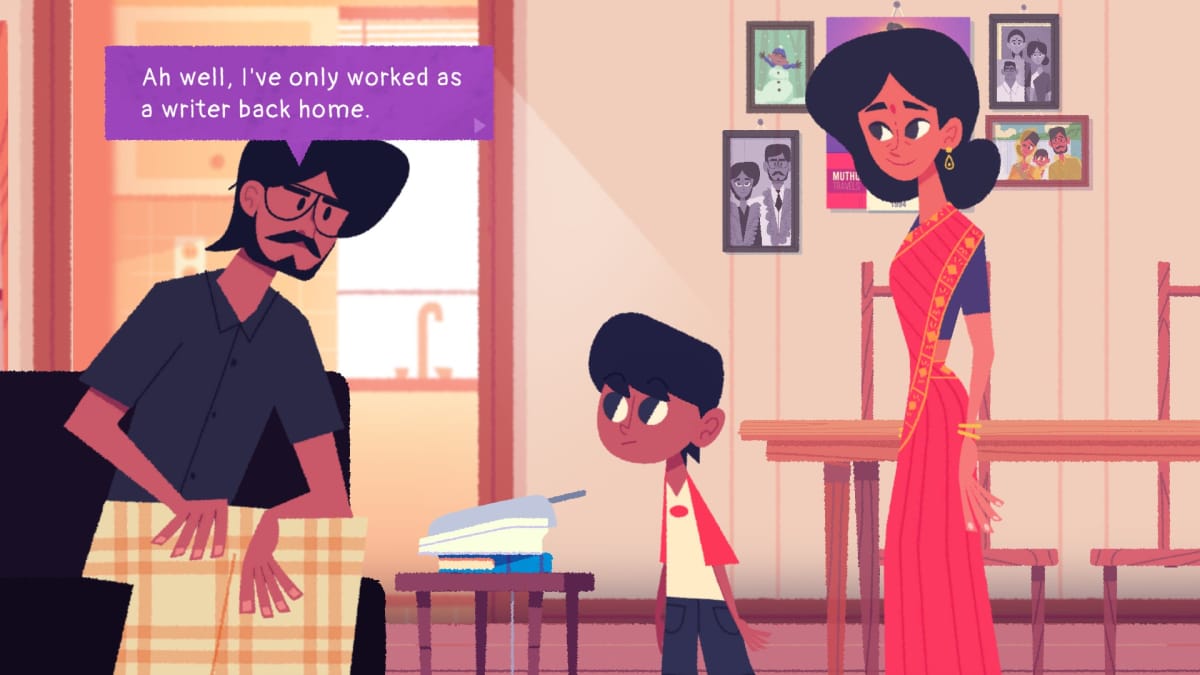
Later that day, Venba ends up going to the doctor, and she learns that she’s pregnant. It’s big news for Venba and Paavalan, as it means they’re at a crossroads now. They can stay in Canada and provide a life with better opportunities to their child, or they can go back to India and find more stable jobs instead of just scraping by.
They decide to stay in Canada and give it their best shot at having a happy life there. Their son, Kavin, starts growing up, but to Venba’s dismay, he’s distancing from his Tamil roots, even preferring the name ‘Kevin’ that his school friends gave him. Having experienced a bit of what Kavin went through, I can understand his need to fit in with the rest of the kids and forgo his culture. At the same time, it hurts me to see Venba’s attempts to connect with Kavin not work, whether that’s through food or otherwise.
I’ve seen the media on both sides of the border portray the Indian immigrant experience, and it’s mostly been a very glamorized take from both Hollywood and Bollywood, showing how successful they are from being doctors and engineers. But Venba shows a far more down-to-earth realistic view on just how much of a struggle it is to leave your home country and start from scratch.
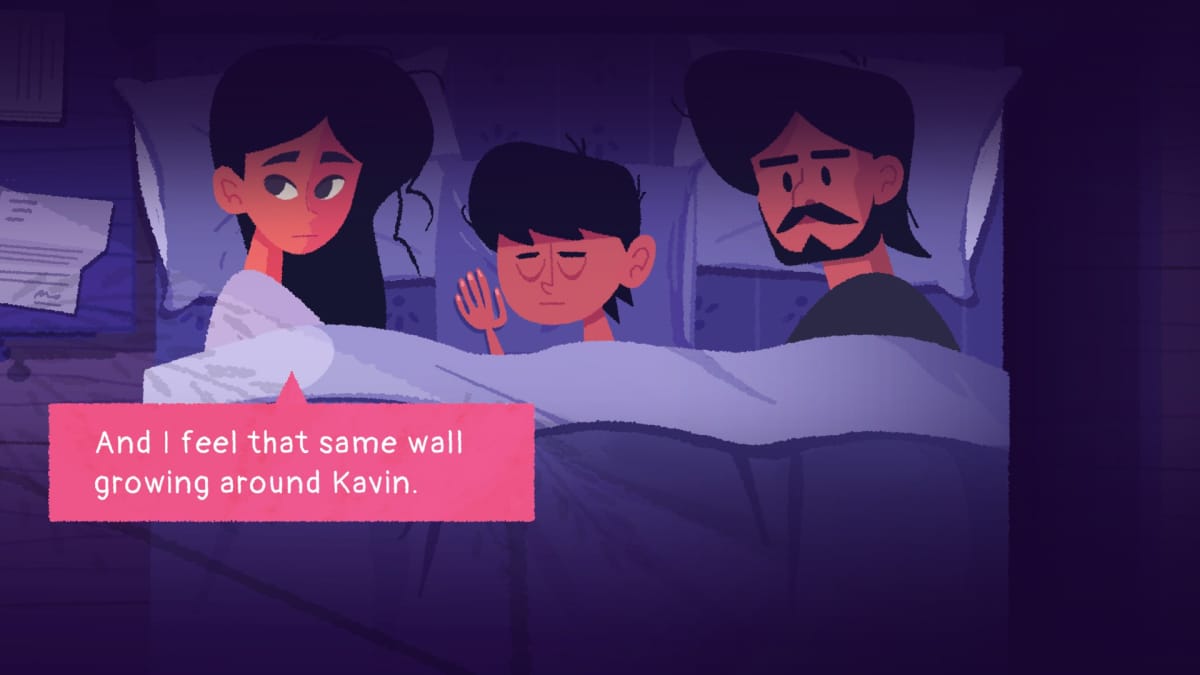
The fear of not being able to find another job after losing your old one, the perils of not knowing the language well enough, and the ache of missing your family back in your country are well represented. During these moments, Venba hits hard. Much like Kavin, I didn’t realize all this as a kid and only appreciated the sacrifices my parents made later on in life.
The game is seven chapters long and you’ll be able to finish it in two hours, so my biggest complaint is that it’s too short. By the end of it I just wanted more. In fact, I ended up playing the whole game from start to finish twice! I wanted to see more of Venba’s life, I wanted to learn more about Paavalan and his writings, but most of all, I wanted to cook more delicious recipes. Unfortunately, there isn’t really anything after you’re done with the story. I would have loved a separate mode where you could just try out more recipes from Venba’s book, or even redo older ones with a harder difficulty setting.
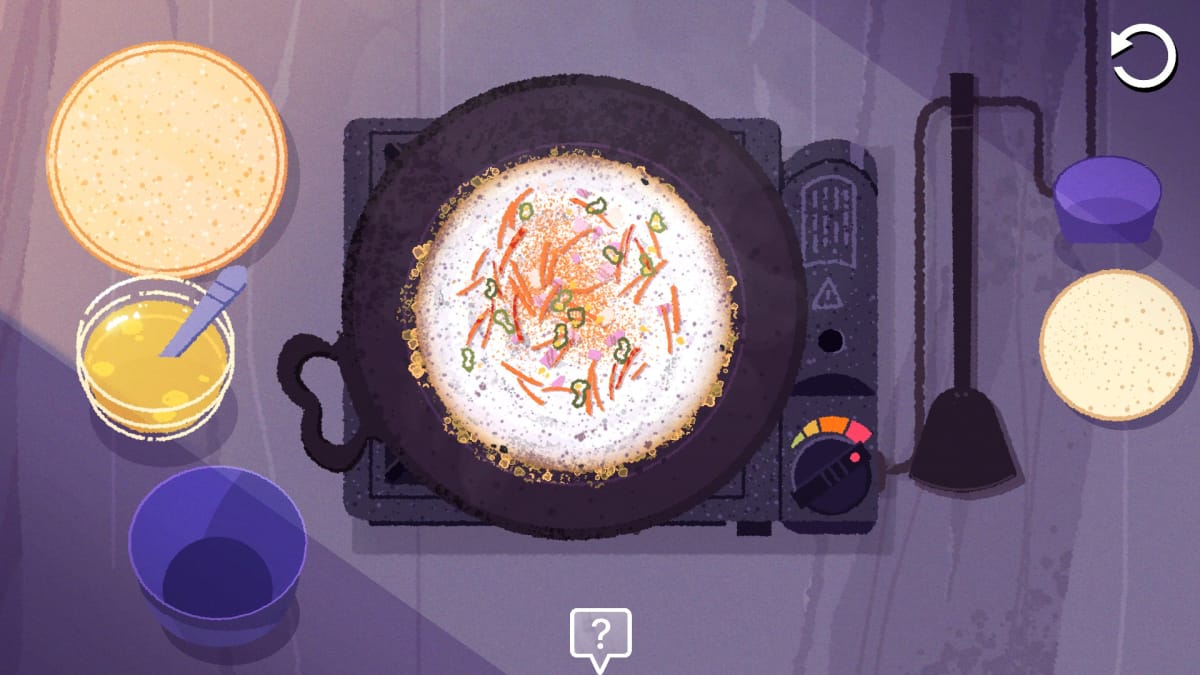
Final Thoughts
At the end of the day though, Venba is a beautiful tale about love and loss that feels like a warm hug. You’ll laugh, you’ll cry, you’ll make delicious dosas, and at the end you'll be wanting seconds.
Venba was reviewed on PC with a copy provided by the developer over the course of 4 hours of gameplay - all screenshots were taken during the process of review.
Review Summary
Pros
- Beautiful 2D art style and illustrations
- Great sound design and boppy soundtrack
- Heartwarming storytelling through cooking gameplay
Cons
- Feels too short
- No post-game content
Have a tip, or want to point out something we missed? Leave a Comment or e-mail us at tips@techraptor.net
